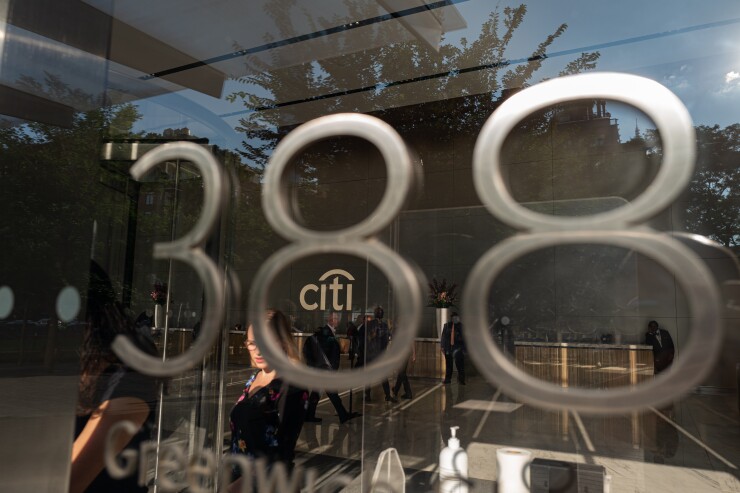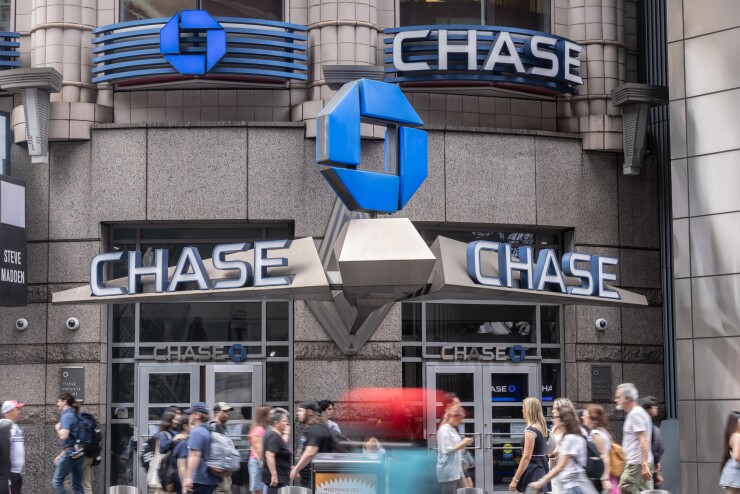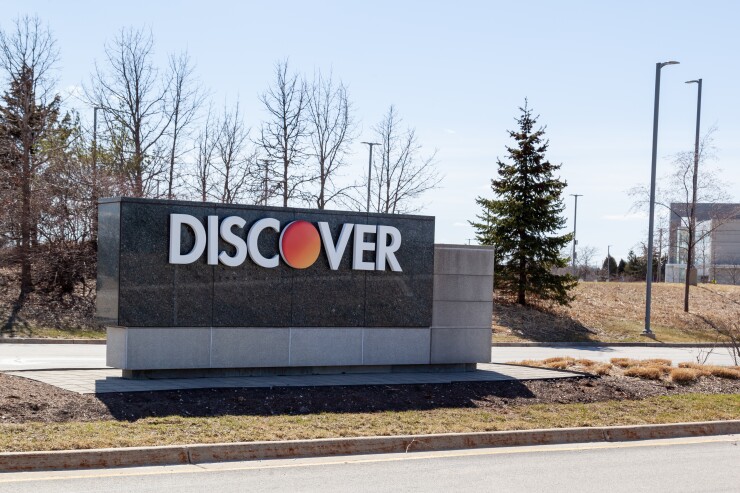Want unlimited access to top ideas and insights?
Earnings season is in full bloom across the financial services industry, with many
Indexes measuring the overall performance of bank stocks, including the
While still significantly elevated, inflation decreased slightly, by 10 basis points to 3%, as reported by the
Read more:
Cooling inflation could help bring about an interest rate cut from the Federal Reserve by September at the earliest, according to Julien Lafargue, chief market strategist at Barclays Private Bank.
"We expect to see continued, albeit slow, disinflation," he said in a recent interview with American Banker's
Among those reporting positive second quarter earnings are the $563 billion-asset
But not every institution that recorded growth over the last three months did so unscathed.
Wells Fargo saw profits jump to $4.9 billion between April and June, up $300 million from the previous three months, but saw its net interest income sink below $12 billion for the first time in roughly two years due to heightened deposit costs and other driving conditions.
Read more:
Some executives have been working with regulators in the background of these results on multi-million dollar settlements for recent and past misdeeds.
In addition to recent fines against Citigroup for faults in its risk management and internal controls systems, the bank is navigating a complex overhaul plan with the Office of the Comptroller of the Currency to remedy those vulnerabilities. This is in tandem with its
The latest hurdle in Discover Financial Services' merger saga with Capital One Financial has seen the credit card network set aside $1.2 billion to close out a lawsuit with merchants that it overcharged for more than a decade.
Read more about the recent issues facing the banking industry and what they mean for investors.

Wells Fargo's profits weighed down by rising deposit costs
Increased competition with other financial institutions drove the bank to offer more interest to depositors, while high borrowing costs led to "tepid" loan demand from businesses, according to Charlie Scharf, chief executive of Wells Fargo. This combination of factors saw
"They're still having to pay more to their deposit customers," Kyle Sanders, senior equity research analyst at Edward Jones, recently told American Banker's
Read more:

Citi stays the course for expenses amid OCC fines
Citigroup executives are remaining steadfast in their full-year operating expense guidance for the bank this year, despite incurring
Predictions for Citi's total operating expenses estimated between $53.5 billion and $53.8 billion, but Chief Financial Officer Mark Mason told investors during the bank's earnings call on July 12 that the final number would likely be towards the higher end of that range.
"We are actively managing that with an eye towards what's required" for the risk management overhaul in order "to keep it on track, to accelerate in areas where we're behind," Mason said.
Despite the regulatory shake up, American Banker's
Read more:

Fifth Third reaches $20 million settlement with CFPB over wrongdoings
Fifth Third Bancorp reached a $20 million agreement with the Consumer Financial Protection Bureau this month to resolve offenses relating to fake checking accounts and force-placed auto insurance.
American Banker's
The remainder of the settlement deals with a suit
Read more:

Fraud proofing branches, rising credit card charge-offs: JPMorgan updates
Very few financial institutions are untouched by the high interest rate environment regardless of asset size, and JPMorgan Chase is no exception. The $4.1 trillion-asset bank saw a
JPMorgan's net charge-off rate rose to 3.5% for the second quarter, up from 2.4% the year prior, but executives told analysts in the bank's earnings call this month that the rise in credit costs was "not a very interesting story." Credit loss provisions at the bank more than doubled since the last quarter, from $1.9 billion to $3.1 billion, to account for bad loans that were charged off and provide a cushion for future instances.
Analysts with Piper Sandler were similarly unworried by the increase in reserves, saying in an interview with American Banker reporter
"I think they're just being appropriate with their reserve building, particularly given that [the] credit card [business] has been a growth area for them," said Scott Siefers, an analyst at Piper Sandler. "So you just need to keep pace with that balance sheet growth."
In the foreground of JPMorgan Chase's earnings season, the bank is changing up its approach to fraud prevention by incorporating more technology across its branch network. Identity checks will be done via kiosks that prompt customers for their account password or other identification, as opposed to a teller manually verifying credentials.
Read more:

Discover approaches $1.2 billion finish line in merchant lawsuit
Discover announced on July 3 that it is preparing to pay $1.2 billion as part of a settlement with merchants who sued the credit card company after
The lawsuit was among a host of issues that likely resulted in the
Clearing this legal hurdle is a vital part of the
Read more:





